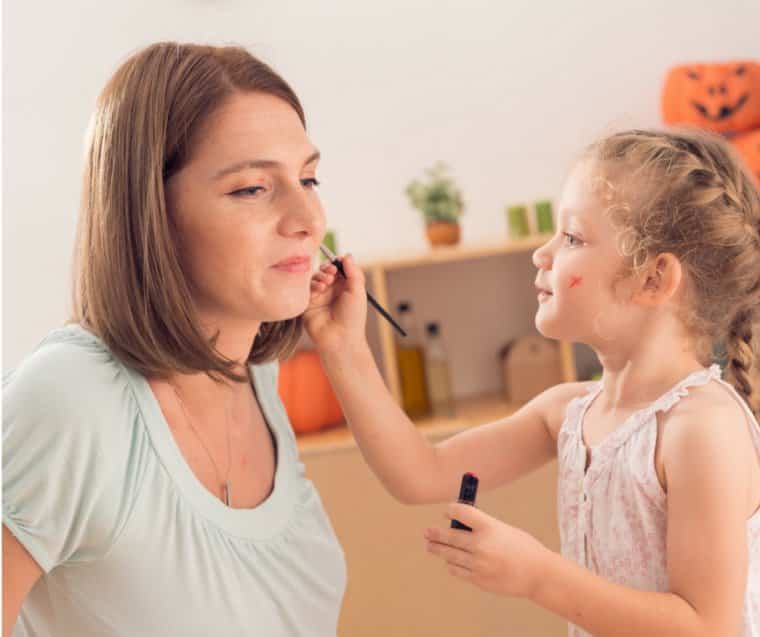![]()
When I started using Special Time with my children they just fell in love with it.
Special Time is a Hand in Hand tool that works like this: You set aside a certain amount of time, say 10 – 15 minutes, and offer to play or do whatever your child likes. During this time you give as much appreciation, attention and love as you can.
 Special Time is a time to let your child explore, be adventurous, do things he wouldn't normally be allowed to do. This is his chance to be stronger, wiser, better. The only real restriction is safety.
Special Time is a time to let your child explore, be adventurous, do things he wouldn't normally be allowed to do. This is his chance to be stronger, wiser, better. The only real restriction is safety.
Special Time gives us and our children the opportunity to connect and to show our love and appreciation in a way that is regular without being too time consuming.
My children would soak up the attention I offered so openly in Special Time. It seemed the more we had, the more positive change I would notice in their behavior, and I thought that if they were filled with love, attention and appreciation, they would stay happy.
So imagine my surprise when this happened:
Recently I said to my four-year-old, Areta, that we had ten minutes to do anything she wanted. She was very happy about that and so we spent a few minutes just kissing and hugging on the sofa. Then she decided she wanted to play with my make-up kit. We went to the bathroom and she ‘painted' me in all sort of colors! Our time finished before she got time to put any makeup on herself.
UnHappy Endings
Her little sister Eva was next in line for Special Time and had already announced she wanted to play with the make-up too, but Areta refused to hand over the makeup brush and started screaming “It’s not fair! I didn’t get to put on my makeup!”
I knew that she needed tending, and I guided all my patience and calmness toward Areta and the issue.”I’m sorry, your time is up. You can put makeup on in the next Special Time,” I said.
“No!!!!” she yelled. “I wanted to NOW!”
I gently took the hand that was using to hold the brush and told her she had to put it back. She screamed “It’s not fair!” She was perspiring and her strong will was written all over her sweet face. Her sister, taking advantage of our struggle, snatched the brush. At that, Areta directed all of her anger towards her sister, pummelling her with her fists.
I got between them and stopped her, and then I asked Eva to wait while I listened to my sweet, but oh so angry kid. I told her I wasn’t going to let her hurt her sister, and that I was here to keep everybody safe.
I stated the limit again. “You have to put the brush back now, honey,” I said.
She rushed into the living room and threw herself on the ground screaming and kicking.
 “Go away! Go away!” she yelled when I tried to get closer, and she punched me with her little fists.
“Go away! Go away!” she yelled when I tried to get closer, and she punched me with her little fists.
I stopped her by holding her hands for a few seconds and told her that I wouldn’t let her hit me.
“Go away!” she yelled again.
“I won’t leave you, sweetie! I don’t want to leave you alone feeling this way. I love you!”
“I don’t…” She wanted to say “I don’t love you,” but suddenly she stopped.
“I love you less!” she said.
A Moment's Pause
I think she was surprised by the fact that she didn’t love me in that moment. Her prefrontal cortex, the part of her brain responsible for reasoning and judgment, which shuts down when connection is lost, like during in a tantrum, re-activated, and she started thinking more clearly.
“That’s OK,” I said. “I’ll stand here and love for the both of us. Don’t worry!”
“I love you just this much,” she said, and she made a heart shape with her little hands.
“Oh, that’s a lot!” I said.
“No!” She made a really small circle with her thumb and index finger. “I actually love you this much.”
“You can love me as much as a dot. I’ll still love you a lot,” I said.
She looked at me incredulously, but then she made the heart shape out of her hands again and smiled at me through it.
“Oh, a heart-shaped mouth! So cute!” I said.
She made me “see” different parts of her body through the hearts. After a few times, I noticed she was more relaxed so I told her I would look at three more things shaped by hearts and then I’d go do Special Time with her sister.
She agreed, but she asked Eva if she could watch our Special Time, and her sister agreed. I was a little nervous because Areta often tries to join in with other people’s Special Time. This time, I respected their agreement and planned only to intervene if necessary.
That time never came.
Areta stood by, content to watch, and then invited her little sister to play when Special Time had finished.
They went off together happy.
Why the Tears?
Why did Areta throw a tantrum after we spent such a good Special Time connecting? There are two main reasons:
- Special Time had filled up her cup with love and attention so she felt safe enough to show me her real feelings. When it came time to finish, she suddenly felt unloved and that disturbed her. She also felt she didn't love me, which was even more unsettling for her.
- When children get a taste of Special Time, with 100 per cent of attention on them, it can be really hard to stop. They want more because it's safe, it's joyous. Some parents might wonder if Special Time is worth it. But it is. They do really grow in their bond with you. It really is some special times you share. And by setting the limit on ending and listening to upsets that follow, children are given a way to offload pent up feelings while you stay and offer support.
I’m thankful I found Hand in Hand Parenting and went through the Certification Program to learn a different, more natural and empathetic way of facing parenting issues. And I’m glad I took the time to listen to my little girl, to discover that she was acting because she didn’t feel loved enough, and to give me a chance to tell her how much I do.
I think my message got through loud and clear because for the next couple of days she kept telling me she loved me just so that she could hear me say it right back.
From the Hand in Hand Toolbox:
Learn more about doing Special Time with your child
Find out what Staylistening is, and how crying can help your child
